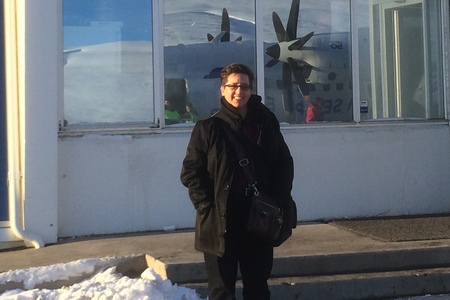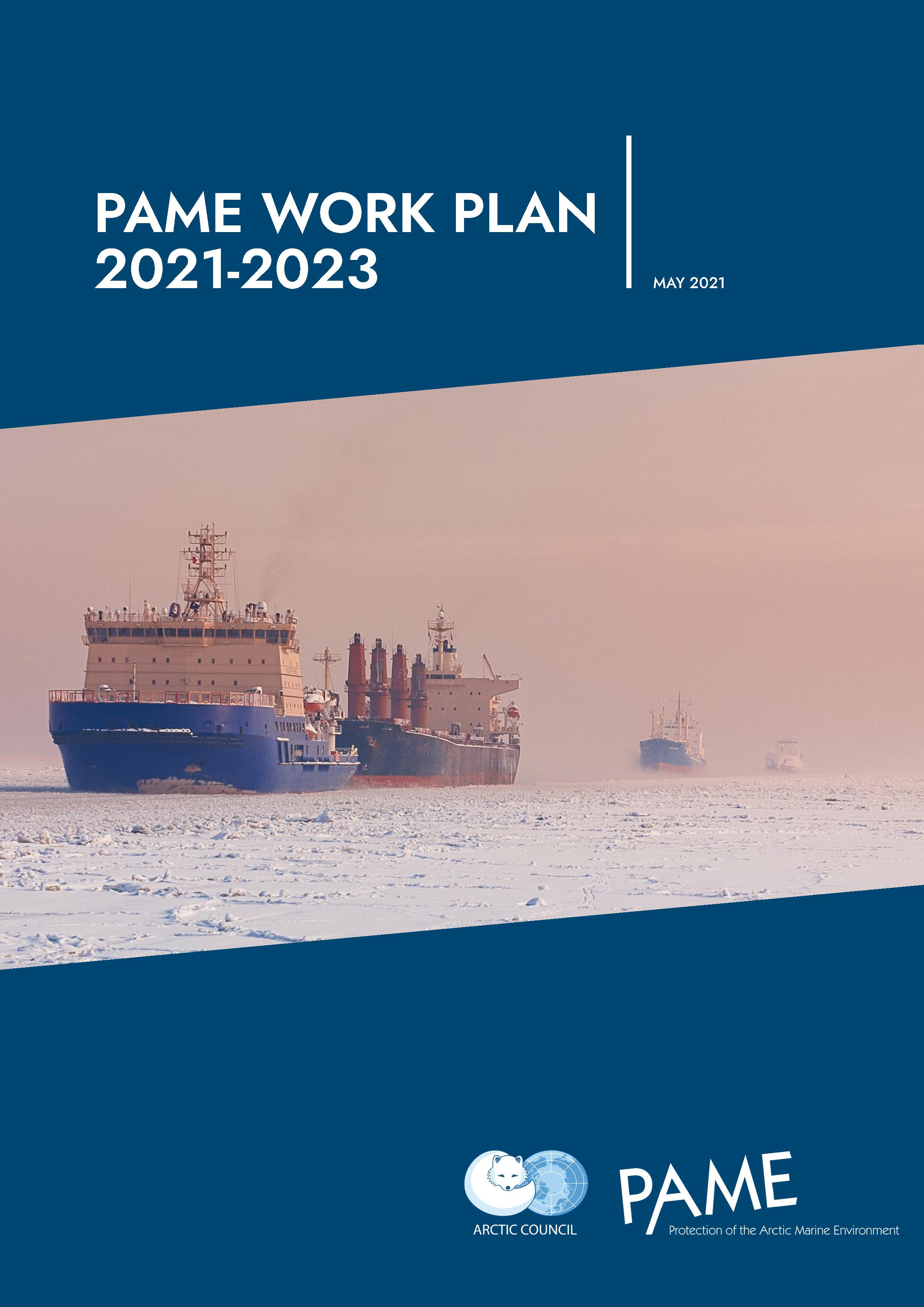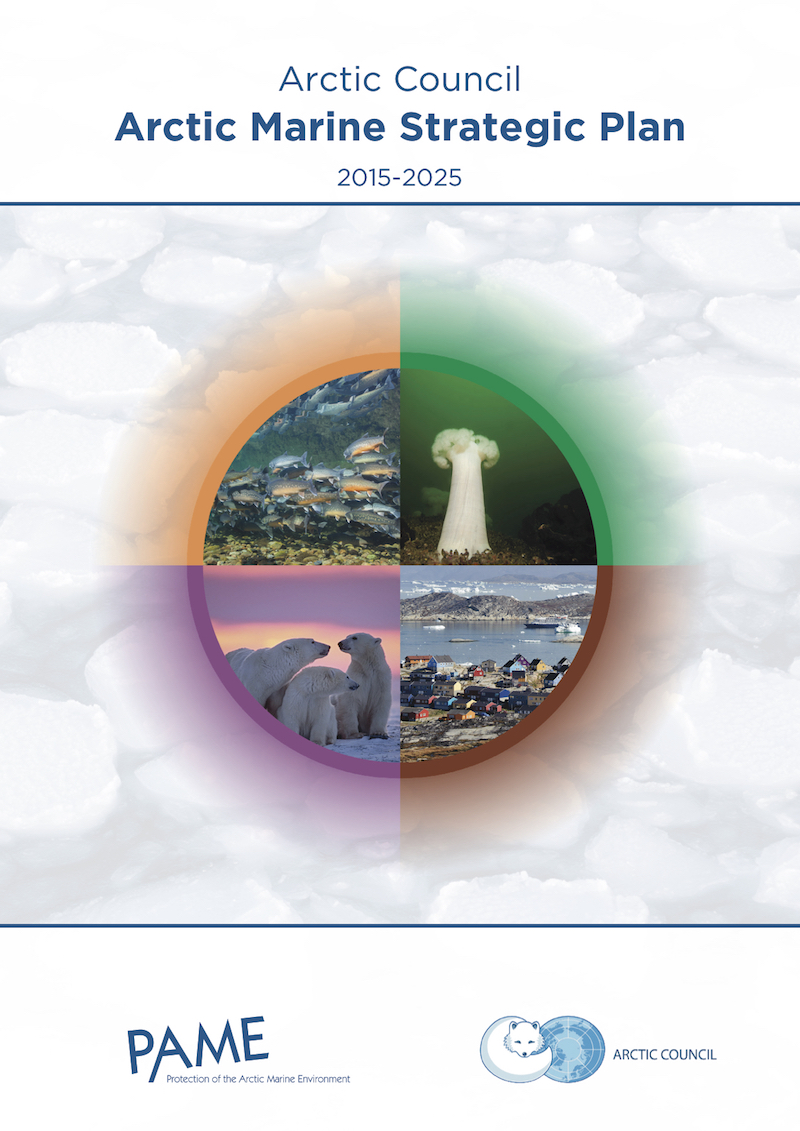 The PAME Working Group recently appointed a new chair, Renée Sauvé of Fisheries and Oceans Canada. Renée has been involved with PAME for several years and will chair the working group for the next two years. At this occation, the Arctic Council website interviewed Renée, which is reposted here at the PAME website.
The PAME Working Group recently appointed a new chair, Renée Sauvé of Fisheries and Oceans Canada. Renée has been involved with PAME for several years and will chair the working group for the next two years. At this occation, the Arctic Council website interviewed Renée, which is reposted here at the PAME website.
Q: What is your background, and how is it that you came to be the chair of PAME?
I am a biologist by training and spent the early part of my career in the Canadian Arctic. I spent a number of years involved in researching Arctic fish stocks and their habitat, and conducting impact assessments. Later I transitioned to international policy work and ended up working at Canada's foreign ministry when the Ottawa Declaration was developed and signed in 1996, formally marking the establishment of the Arctic Council. Since that time I have been part of the Canadian delegation to PAME, representing my current department - Fisheries and Oceans Canada - and in more recent years I have had the opportunity to lead Canada's delegation to PAME. It has been a while since Canada chaired PAME, and I think my technical background and long history with PAME has made me well-placed to help provide some guidance for the Working Group over the next couple of years. I’m very much looking forward to the ambitious marine agenda ahead.
Q: What element of your role as PAME chair are you most looking forward to?
As a Working Group Chair you have opportunities to interact more directly with SAOs and are a bit closer to the Chairmanship. I look forward to being more directly involved in some of the higher-profile Chairmanship priorities, and having the chance to work closely with the other Working Group Chairs. PAME has many representatives who have been involved with the Working Group for a number of years, so it is a very friendly environment and I am looking forward to working with this group of people on a forward-looking agenda.
Q: What are one or two of the most important challenges within PAME’s area of work in the years ahead?
The Arctic is very much a marine world. The vast majority of communities are coastal, and people depend on the marine environment for food, work, and transportation. The Arctic Ocean is at the center of life - including culturally - in the region, and is a key determinant of its future. However, the Arctic marine environment is demonstrating unprecedented changes, some fundamental such as changes in its chemistry – for example, ocean acidification – or emerging economic change with increased maritime activity. The challenge for PAME is to try and stay current with advice to Ministers in the face of this rapid change. These changes have also come with increased world attention on the Arctic, bringing with it growing expectations of the Arctic countries. All of this makes for a challenging work environment, trying to develop helpful guidance with respect to the conservation and use of the Arctic marine environment.
Q: How will PAME be working to tackle those challenges?
It is very important that PAME stay current on the latest science and knowledge of trends in the Arctic marine environment. Good work in this regard is happening through AMAP and CAFF (the Arctic Monitoring and Assessment Programme and Conservation of Arctic Flora and Fauna, both also Arctic Council Working Groups), and we really need to make sure that our marine experts are connecting with experts from the other Working Groups. There is an increased emphasis on the need to implement integrated, ecosystem approaches. I would like to advance greater cross-Working Group collaboration over the next couple of years. I would also like see advances in cross-border collaboration in the near term, linking up marine management measures, helping to show a regional picture of what the Arctic States are doing. The idea of greater regional cooperation is a particular focus during the U.S. Chairmanship through the Task Force on Arctic Marine Cooperation. PAME has done a good degree of work in this regard, it will be important to ensure that PAME's work is taken into account and informs the work of the Task Force.





